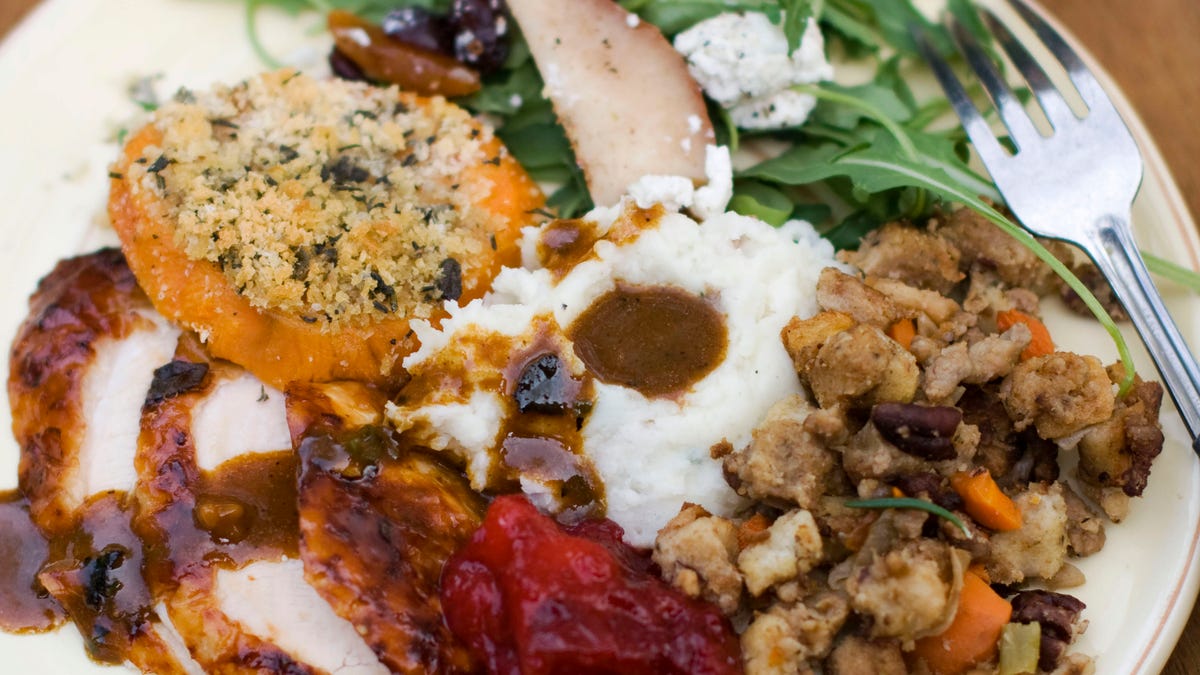
Oct. 8, 2012: Thanksgiving dinner plate. (AP)
We’ve all stuffed ourselves silly in the name of holiday cheer. But even though it might tickle your taste buds, the rest of your body doesn’t react quite as merrily. Check out five ways your body physically responds to the demands of a holiday feast.
RELATED: The Fastest Ways to Get Ripped
Your stomach gets huge
To accommodate all the food you’re throwing down the hatch, your stomach, which is about the size of your fist when empty, stretches to massive proportions—up to the size of a gallon of milk if you're really pushing things, explains Wesley Delbridge, R.D., a spokesperson for the Academy of Nutrition & Dietetics. You feel like you have a food baby growing inside of you, and as your stomach presses against your other organs, you might feel achy or get a mean case of heartburn, he says.
RELATED: Shirtless Nick Jonas Explains How He Got His New Buff Body
Your pancreas goes crazy
With thousands of calories' worth of fat and sugar sitting in your stomach, your pancreas starts pumping out tons of insulin, a hormone that helps regulate the amount of glucose, or sugar, in your blood stream, Delbridge says. The insulin shuttles some of the sugar into your liver and muscles to be stored as glycogen, which your body can use later for energy. But most of it winds up in your fat cells (no surprise there) or floating through your blood stream as triglycerides.
RELATED: Brad Pitt Is Back and Sexier Than Ever
Your self-control waivers
Meanwhile, if you’re drinking with your meal, you might find yourself even more ravenous than during sober holiday feasts. “Apart from destroying your inhibitions, alcohol tampers with your body’s levels of the hunger-regulating hormones leptin and ghrelin," says Delbridge.
RELATED: 7 New Moves for Perfect Abs
The food coma sets in
You can blame turkey’s tryptophan all you want, but the real reason for a food coma is that enormous plate of mashed potatoes, stuffing, rolls, and pie—and all the sugar they contain. “With so much sugar hitting your system at once, your body has to pretty much shut everything down in order to digest all of the food,” Delbridge says. “That's why people are conked-out on the couch after their holiday feast.”
You get the munchies
“After about two hours or so, the body is like, ‘Okay, we did our job,’ and you now find yourself with very low blood-sugar levels,” Delbridge says. Remember that the prior insulin surge already stocked all of that sugar away for safekeeping. However, your body doesn’t like having low blood sugar, so you start craving just “one more piece” of pie. And then it all starts again …








































